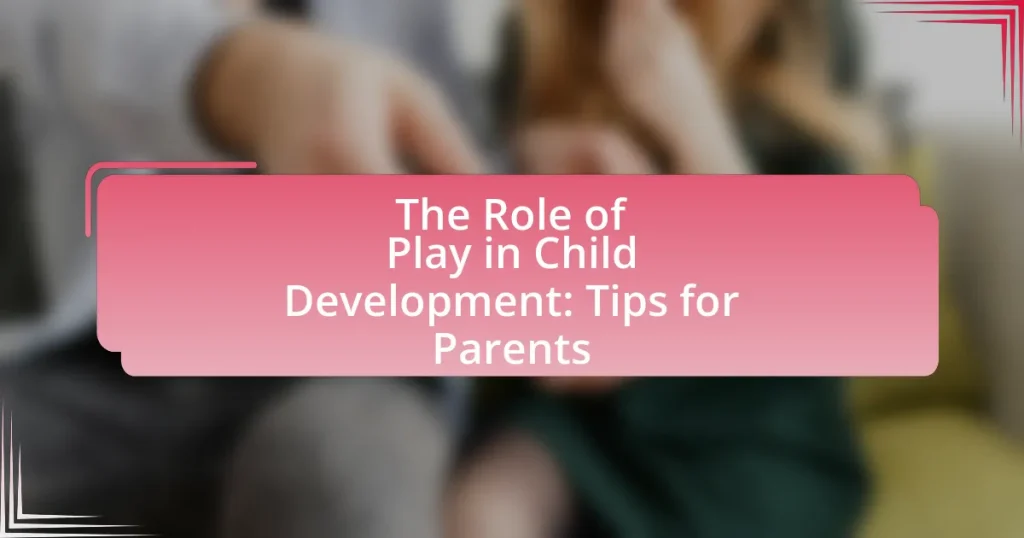Family book clubs are organized gatherings where family members read and discuss books together, fostering communication and bonding. These clubs enhance literacy skills, critical thinking, and emotional connections among participants. The article outlines how family book clubs function, the roles of family members, the selection of reading materials, and the importance of these clubs in promoting literacy and strengthening family relationships. It also addresses the social benefits, challenges faced, and strategies for successful implementation, emphasizing the positive impact of shared reading experiences on family dynamics and children’s love for literature.

What are Family Book Clubs?
Family book clubs are organized gatherings where family members read and discuss books together. These clubs foster a shared reading experience, enhancing communication and bonding among family members. Research indicates that engaging in discussions about books can improve comprehension and critical thinking skills, making family book clubs an effective tool for promoting literacy and encouraging a love for reading within the family unit.
How do Family Book Clubs function?
Family book clubs function by bringing family members together to read and discuss selected books, fostering communication and shared experiences. Participants typically choose a book that appeals to various age groups, read it individually or collectively, and then convene to discuss themes, characters, and personal reflections. This collaborative approach not only enhances comprehension and critical thinking but also strengthens family bonds through shared literary experiences. Research indicates that family reading activities can improve children’s literacy skills and promote a lifelong love of reading, as highlighted in studies by the National Literacy Trust, which found that children who engage in reading with family members are more likely to develop positive attitudes toward reading.
What roles do family members play in a Family Book Club?
Family members in a Family Book Club play distinct roles that enhance the reading experience and foster family bonding. Parents often take on the role of facilitators, guiding discussions and selecting books that cater to various age groups, ensuring that all members are engaged. Children may act as contributors, sharing their perspectives and interpretations, which encourages critical thinking and communication skills. Siblings can serve as motivators, inspiring each other to read and participate actively. Research indicates that family involvement in reading activities significantly improves literacy skills and strengthens familial relationships, as noted in studies by the National Center for Family Literacy.
How is the reading material selected for Family Book Clubs?
Reading material for Family Book Clubs is selected through a collaborative process involving family members’ interests and age-appropriate themes. Families often discuss potential titles, considering factors such as genre, relevance to their lives, and educational value. This approach ensures that the chosen books resonate with all participants, fostering engagement and meaningful discussions. Research indicates that when families select books together, it enhances their reading experience and strengthens family bonds, as seen in studies highlighting the positive impact of shared reading activities on family dynamics.
Why are Family Book Clubs important?
Family book clubs are important because they foster communication and strengthen family bonds through shared reading experiences. Engaging in discussions about books allows family members to express their thoughts and feelings, enhancing emotional connections. Research indicates that families who read together improve literacy skills and develop a lifelong love for reading, which is crucial for academic success. Additionally, participating in a family book club encourages critical thinking and empathy as members explore diverse perspectives presented in literature.
What impact do Family Book Clubs have on family bonding?
Family Book Clubs significantly enhance family bonding by fostering communication and shared experiences. Engaging in discussions about books allows family members to express their thoughts and feelings, creating a deeper understanding of each other. Research indicates that families who read together report stronger emotional connections and improved relationships, as shared narratives facilitate empathy and collaboration. Additionally, the act of choosing books together promotes teamwork and collective decision-making, further strengthening familial ties.
How do Family Book Clubs promote literacy among children?
Family Book Clubs promote literacy among children by fostering a shared reading experience that enhances comprehension and critical thinking skills. Engaging in discussions about books encourages children to articulate their thoughts and opinions, which strengthens their verbal skills and boosts confidence in communication. Research indicates that children who participate in family reading activities demonstrate improved reading proficiency and a greater love for literature, as evidenced by a study from the National Endowment for the Arts, which found that children who read with family members are more likely to develop lifelong reading habits.

What are the specific benefits of Family Book Clubs?
Family Book Clubs enhance family bonding, improve communication, and foster a love for reading among all members. By engaging in discussions about shared reading materials, families can strengthen their relationships and create a supportive environment for expressing thoughts and opinions. Research indicates that children who participate in family reading activities demonstrate better literacy skills and a greater interest in books, which can lead to improved academic performance. Additionally, Family Book Clubs provide a structured opportunity for families to spend quality time together, promoting a culture of reading that can last a lifetime.
How do Family Book Clubs enhance communication skills?
Family Book Clubs enhance communication skills by providing a structured environment for family members to discuss ideas, themes, and characters from the books they read together. This shared activity encourages active listening, critical thinking, and the articulation of personal opinions, which are essential components of effective communication. Research indicates that family discussions about literature can improve vocabulary and comprehension, as participants are prompted to express their thoughts and engage in dialogue. For instance, a study published in the Journal of Family Communication found that families who engage in book discussions report higher levels of communication satisfaction and improved relational dynamics.
What discussions arise from reading together in Family Book Clubs?
Reading together in Family Book Clubs fosters discussions about themes, character development, and moral lessons present in the books. These discussions often lead to deeper conversations about family values, personal experiences, and differing perspectives, enhancing communication skills among family members. Research indicates that engaging in such dialogues can strengthen family bonds and improve critical thinking abilities, as families analyze and interpret the text collectively. For instance, a study published in the Journal of Family Communication highlights that shared reading experiences promote open dialogue and emotional connection, demonstrating the significant impact of Family Book Clubs on familial relationships.
How does sharing opinions in a Family Book Club foster critical thinking?
Sharing opinions in a Family Book Club fosters critical thinking by encouraging participants to analyze and evaluate different perspectives on the material read. This process requires individuals to articulate their thoughts, defend their viewpoints, and consider alternative interpretations, which enhances cognitive skills. Research indicates that discussions that involve diverse opinions promote deeper understanding and engagement with the text, leading to improved analytical abilities. For instance, a study published in the Journal of Educational Psychology found that collaborative discussions significantly enhance critical thinking skills among participants, as they learn to navigate complex ideas and challenge their own assumptions.
What social benefits do Family Book Clubs provide?
Family Book Clubs provide enhanced family bonding and improved communication among members. By engaging in shared reading experiences, families create opportunities for discussion, fostering deeper connections and understanding. Research indicates that families who read together report stronger relationships and increased emotional support, as shared narratives can lead to meaningful conversations and shared values. Additionally, Family Book Clubs encourage social interaction with peers, promoting a sense of community and belonging, which is vital for emotional well-being.
How do Family Book Clubs create a sense of community?
Family Book Clubs create a sense of community by fostering shared experiences and discussions around literature among family members. This collaborative reading environment encourages open communication, strengthens familial bonds, and promotes a culture of reading. Research indicates that families who engage in shared reading activities report improved relationships and increased emotional connection, as they explore themes and ideas together. Additionally, participating in a Family Book Club allows members to develop a collective identity, as they share insights and perspectives, reinforcing their sense of belonging within the family unit.
What friendships can develop through Family Book Clubs?
Family Book Clubs can foster friendships among family members and friends by creating a shared space for discussion and connection. These clubs encourage open dialogue about books, which can lead to deeper understanding and bonding over shared interests and perspectives. Research indicates that engaging in group activities, such as reading and discussing literature, enhances interpersonal relationships by promoting empathy and communication skills. For example, a study published in the Journal of Family Psychology found that families who read together reported stronger emotional connections and improved communication. Thus, Family Book Clubs serve as a platform for developing meaningful friendships through collaborative reading experiences.

How can families effectively implement a Family Book Club?
Families can effectively implement a Family Book Club by selecting a regular meeting time, choosing engaging books that cater to all family members’ interests, and encouraging open discussions about the readings. Establishing a consistent schedule, such as weekly or bi-weekly meetings, helps create a routine that prioritizes reading. Selecting books that appeal to various age groups ensures that everyone is invested in the reading experience. Encouraging discussions allows family members to express their thoughts and insights, fostering a deeper understanding of the material and enhancing critical thinking skills. Research indicates that family reading activities can improve literacy skills and strengthen family bonds, making the Family Book Club a beneficial practice.
What steps should families take to start a Family Book Club?
Families should take the following steps to start a Family Book Club: First, gather family members to discuss the idea and establish interest in participating. Next, choose a regular meeting time and place that accommodates everyone’s schedule. Then, select a book that appeals to all ages involved, ensuring it is age-appropriate and engaging. After that, create a reading schedule to keep everyone on track. Finally, plan discussion questions and activities related to the book to enhance engagement during meetings. These steps facilitate a structured approach to forming a Family Book Club, promoting shared reading experiences and discussions.
How can families choose the right books for their Book Club?
Families can choose the right books for their Book Club by considering the interests and reading levels of all members. Selecting books that resonate with family members ensures engagement and meaningful discussions. Research indicates that when families choose books collaboratively, it fosters a sense of ownership and enhances the reading experience. Additionally, utilizing resources like book lists from libraries or educational websites can provide recommendations tailored to various age groups and themes, ensuring a diverse selection that appeals to everyone involved.
What scheduling tips can help maintain regular meetings?
To maintain regular meetings, establish a consistent schedule by selecting a specific day and time that works for all participants. This approach fosters accountability and ensures that everyone can plan accordingly. Research indicates that regularity in scheduling increases attendance rates; for instance, a study by the American Psychological Association found that structured routines enhance commitment and participation in group activities. Additionally, utilizing digital calendars and reminders can help keep everyone informed and engaged, further supporting the goal of consistent meeting attendance.
What are some best practices for running a successful Family Book Club?
To run a successful Family Book Club, establish a regular meeting schedule that accommodates all family members. Consistency fosters commitment and anticipation for discussions. Select books that appeal to various age groups and interests, ensuring everyone feels included and engaged. Encourage open dialogue by asking thought-provoking questions that stimulate conversation and critical thinking. Create a comfortable environment where all opinions are valued, promoting respect and active listening. Incorporate fun activities related to the book, such as themed snacks or creative projects, to enhance the experience and make reading enjoyable. Research indicates that family reading time strengthens bonds and improves literacy skills, making these practices beneficial for both relationships and education.
How can families encourage participation from all members?
Families can encourage participation from all members by creating an inclusive environment that values each person’s input and preferences. This can be achieved by selecting books that cater to diverse interests and age groups, ensuring everyone feels represented. Research indicates that family reading activities, such as book clubs, enhance engagement; for instance, a study by the National Literacy Trust found that children who participate in family reading activities show improved literacy skills and a greater love for reading. By fostering open discussions about the chosen books, families can further promote active participation, allowing each member to share their thoughts and insights, thus reinforcing a sense of belonging and collaboration.
What activities can enhance the Family Book Club experience?
Engaging activities that can enhance the Family Book Club experience include themed discussions, creative projects, and interactive games. Themed discussions allow family members to explore specific aspects of the book, such as character motivations or moral lessons, fostering deeper understanding and connection. Creative projects, like crafting book-related art or writing alternative endings, encourage imaginative thinking and collaboration. Interactive games, such as trivia or charades based on the book’s content, make the reading experience fun and memorable. These activities not only promote engagement but also strengthen family bonds through shared experiences and discussions.
What challenges might families face in a Family Book Club?
Families may face scheduling conflicts as a significant challenge in a Family Book Club. Coordinating time for all members to read and discuss the chosen book can be difficult due to varying commitments such as work, school, and extracurricular activities. Additionally, differing reading levels and interests among family members can create tension, as some may struggle to engage with the material or feel left out. Research indicates that family dynamics can also affect participation; for instance, if one member dominates discussions, others may feel discouraged from sharing their thoughts. These challenges can hinder the overall effectiveness and enjoyment of the Family Book Club experience.
How can families overcome resistance to reading among children?
Families can overcome resistance to reading among children by creating a positive and engaging reading environment. This can be achieved by incorporating reading into daily routines, such as setting aside specific times for family reading sessions, which research shows can enhance children’s interest in books. Additionally, families can choose books that align with children’s interests, making reading more relatable and enjoyable. Studies indicate that children are more likely to engage with reading when they see their parents actively participating in it, thus modeling positive reading behaviors. Furthermore, discussing stories and sharing thoughts about books can foster a sense of community and connection, reinforcing the value of reading within the family.
What strategies can help manage differing reading levels within the family?
To manage differing reading levels within the family, implementing a tiered reading approach is effective. This strategy involves selecting books that cater to various reading abilities, allowing each family member to engage with material suited to their level while still participating in shared discussions. For instance, families can choose a book that has a simpler version for younger or less proficient readers and a more complex version for advanced readers, ensuring everyone can contribute to conversations about the story. Research indicates that family reading sessions can enhance comprehension and foster a love for reading across all ages, as seen in studies by the National Literacy Trust, which highlight the positive impact of shared reading experiences on literacy development.
What tips can help families maximize the benefits of their Book Club?
To maximize the benefits of their Book Club, families should establish a regular meeting schedule, select diverse reading materials, and encourage open discussions. Regular meetings create consistency, making reading a shared priority, while diverse materials cater to different interests and promote broader perspectives. Open discussions foster critical thinking and enhance comprehension, allowing family members to express their thoughts and learn from each other. Research indicates that family engagement in reading activities significantly improves children’s literacy skills and fosters a love for reading, as highlighted in the National Endowment for the Arts report, “To Read or Not to Read.”














